English Writing
Subject Leader: Mrs H Taylor - taylorh@saintgeogrescofe.kent.sch.uk
English has a fundamentally important place in society. The skills of language are essential to enable an individual to fully participate in the world in which they live and express their ideas and emotions. A high standard of education in English will teach pupils to speak, read and write fluently in order to communicate with others and for others to communicate with them.
Intent
At Saint George’s Primary Phase, we believe that a quality English curriculum should develop children’s love of writing, and discussion, enabling our pupils to access all areas of the curriculum and the wider world. We recognise the importance of nurturing a culture where children take pride in their writing, can write clearly and accurately, and adapt their language and style for a range of contexts. We want to inspire children to be confident in the art of speaking and listening and encourage the art of debate to further their learning.
We believe that children need to develop a secure knowledge base in English, which follows a clear pathway of progression as they advance through the primary curriculum. We believe that a secure basis in literacy skills is crucial and supports learning across all areas of the curriculum. Literacy skills will give our children the tools they need to participate fully as members of society.
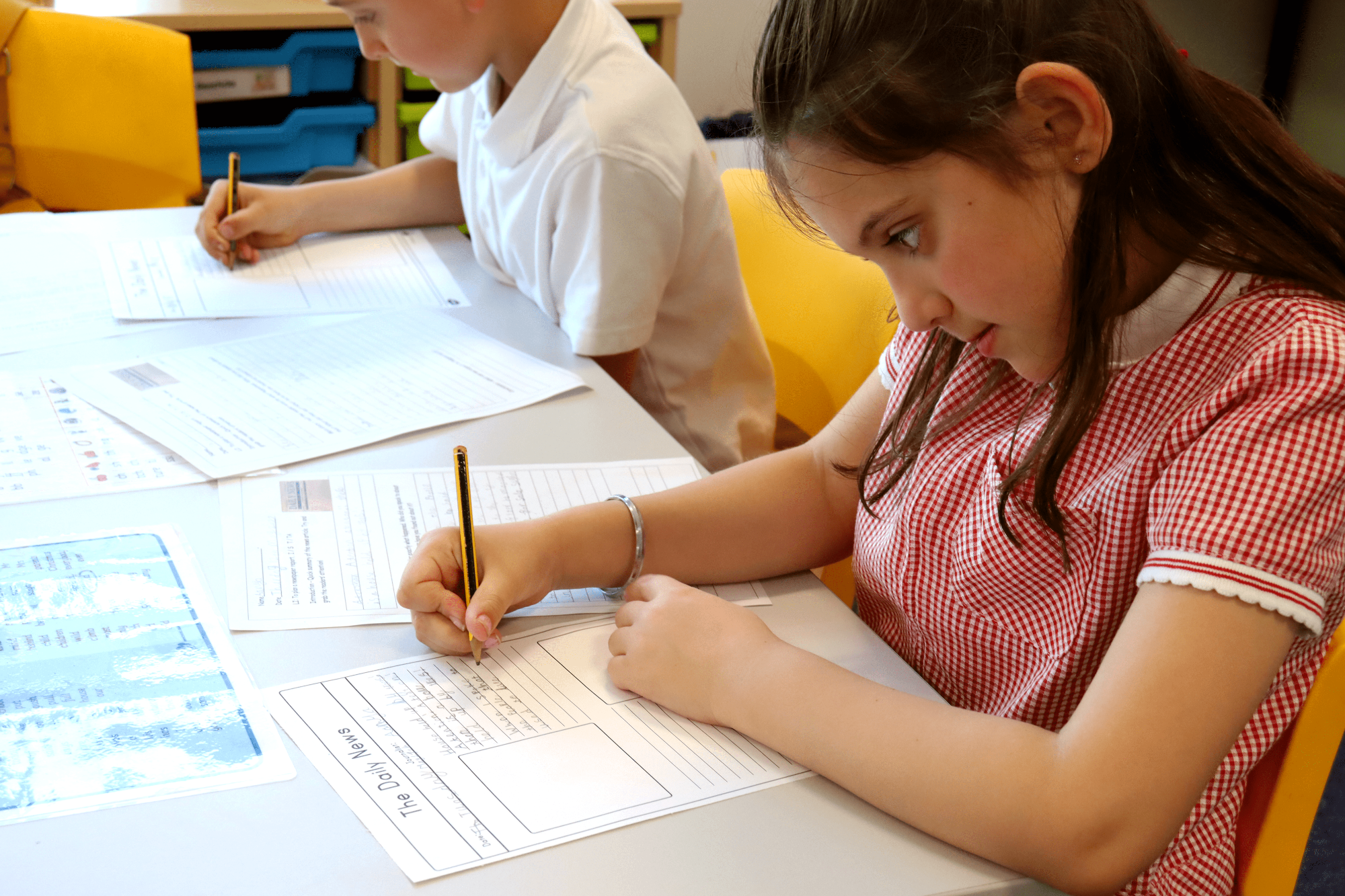
Implementation
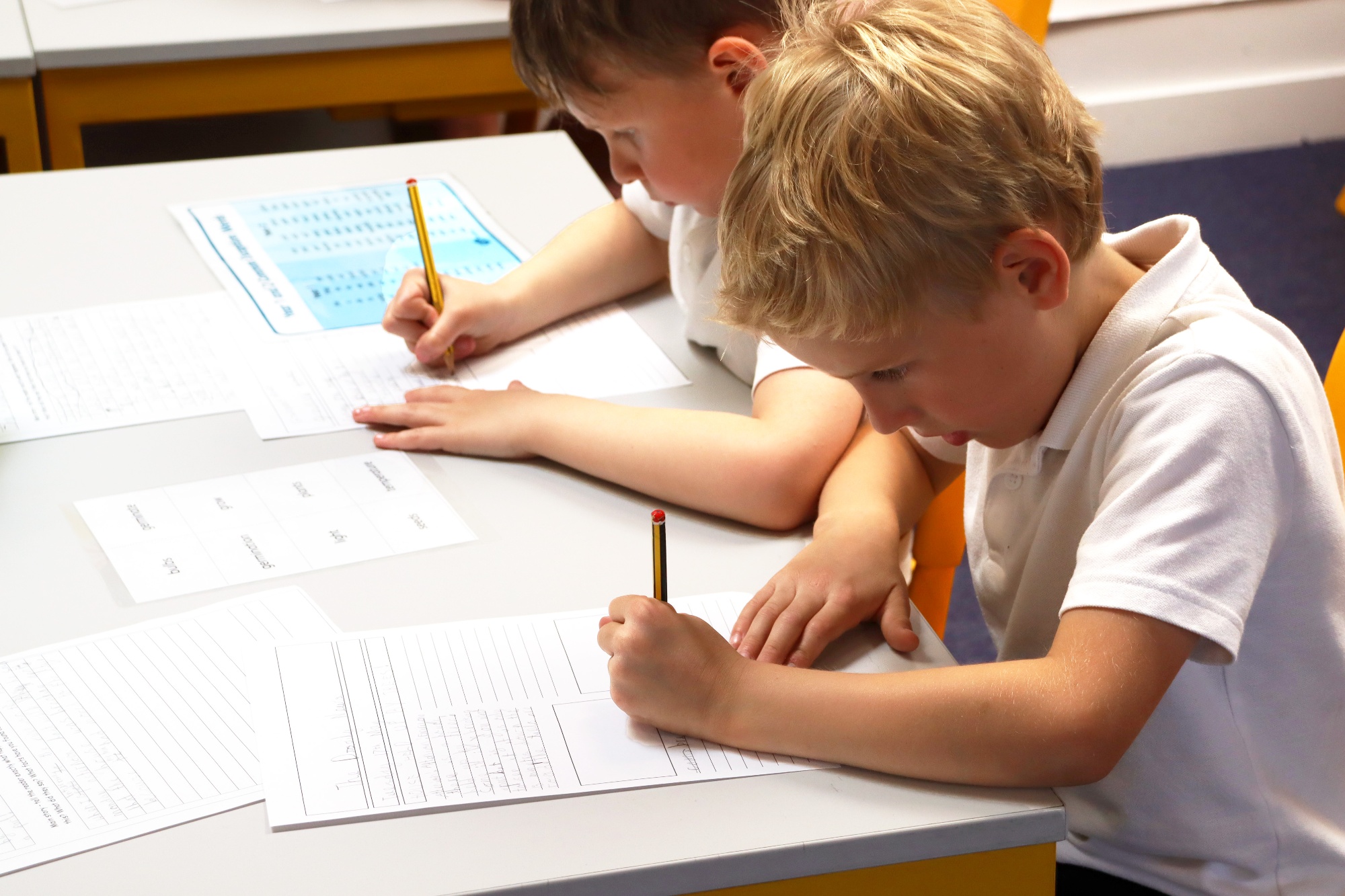
Our intention to ensure that all children develop a love of writing and discussion is embedded across our English lessons as well as the wider curriculum. Our English curriculum is organised to ensure that it provides many purposeful opportunities for writing, and discussion. The school follows the Quigley Essentials Curriculum, which ensures teachers are empowered to plan creatively with flexibility around timetabling. Cross-curricular links with concurrent topic work are woven into the programme of study. Our curriculum closely follows the aims of the National Curriculum for English 2014.
The National Curriculum for English aims to ensure that all pupils:
- acquire a wide vocabulary, an understanding of grammar, and knowledge of linguistic conventions for writing, and spoken language
- appreciate our rich and varied literary heritage
- write clearly, accurately, and coherently, adapting their language and style in and for a range of contexts, purposes, and audiences
- use discussion in order to learn; they should be able to elaborate and explain clearly their understanding and ideas
- are competent in the arts of speaking and listening, making formal presentations, demonstrating to others, and participating in debate.
In addition to daily English lessons, children excel through high-quality phonics teaching through the ‘Little Wandle’ programme and daily opportunities for storytelling. We use a wide variety of quality texts and resources to motivate and inspire our children.
Impact
As a result, we have a community of enthusiastic writers who enjoy showcasing their developing literacy knowledge and skills. They are confident to take risks in their writing and love to discuss and share their ideas. This is evident when speaking to our children, looking in their books and around our school.
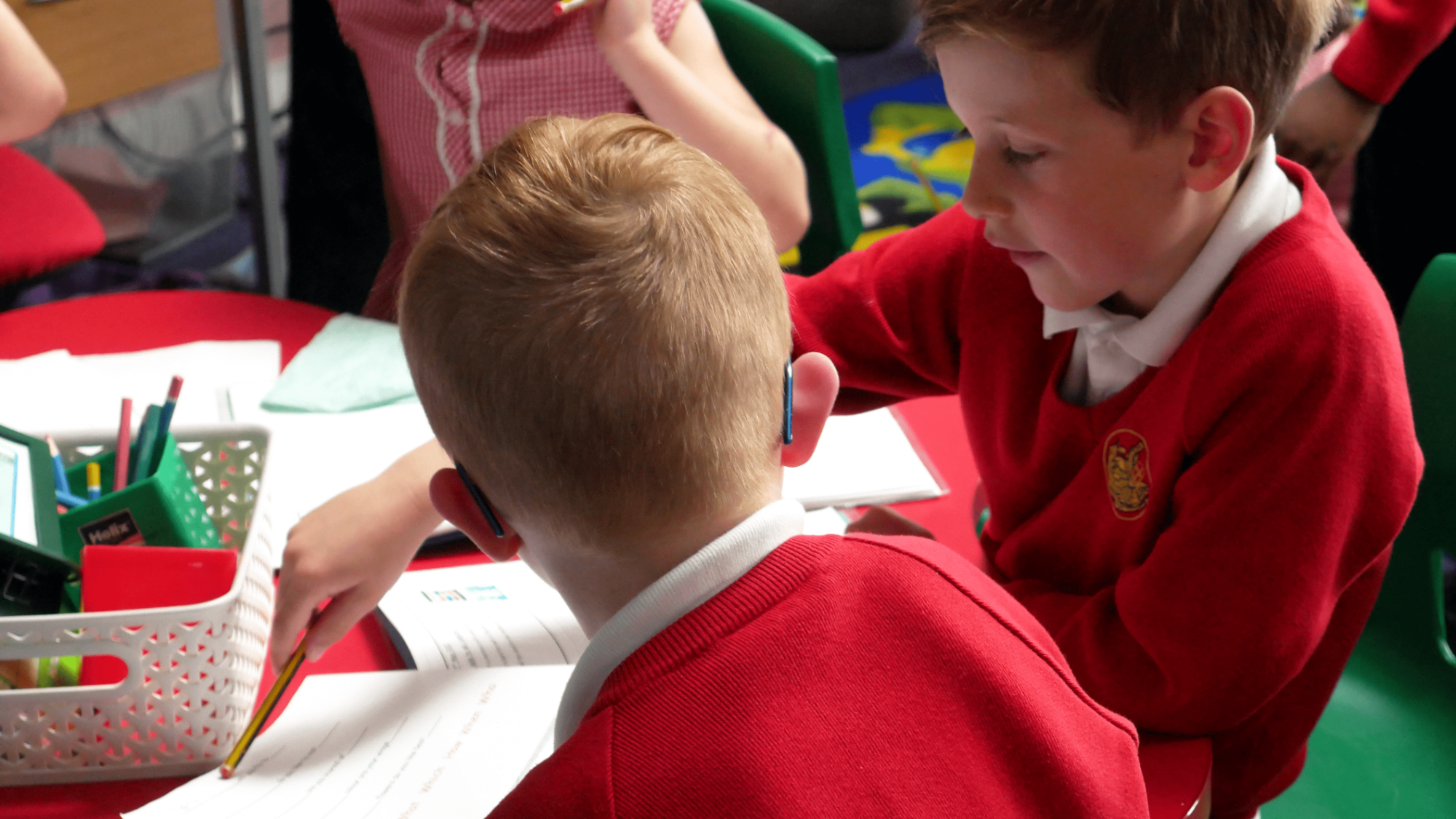
English Writing at Early Years Foundation Stage (EYFS)
Our focus at Saint George’s Primary Phase is on grammatically accurate and fluent writing. Teachers model the writing and planning process through shared writing sessions where ideas are collected and developed.
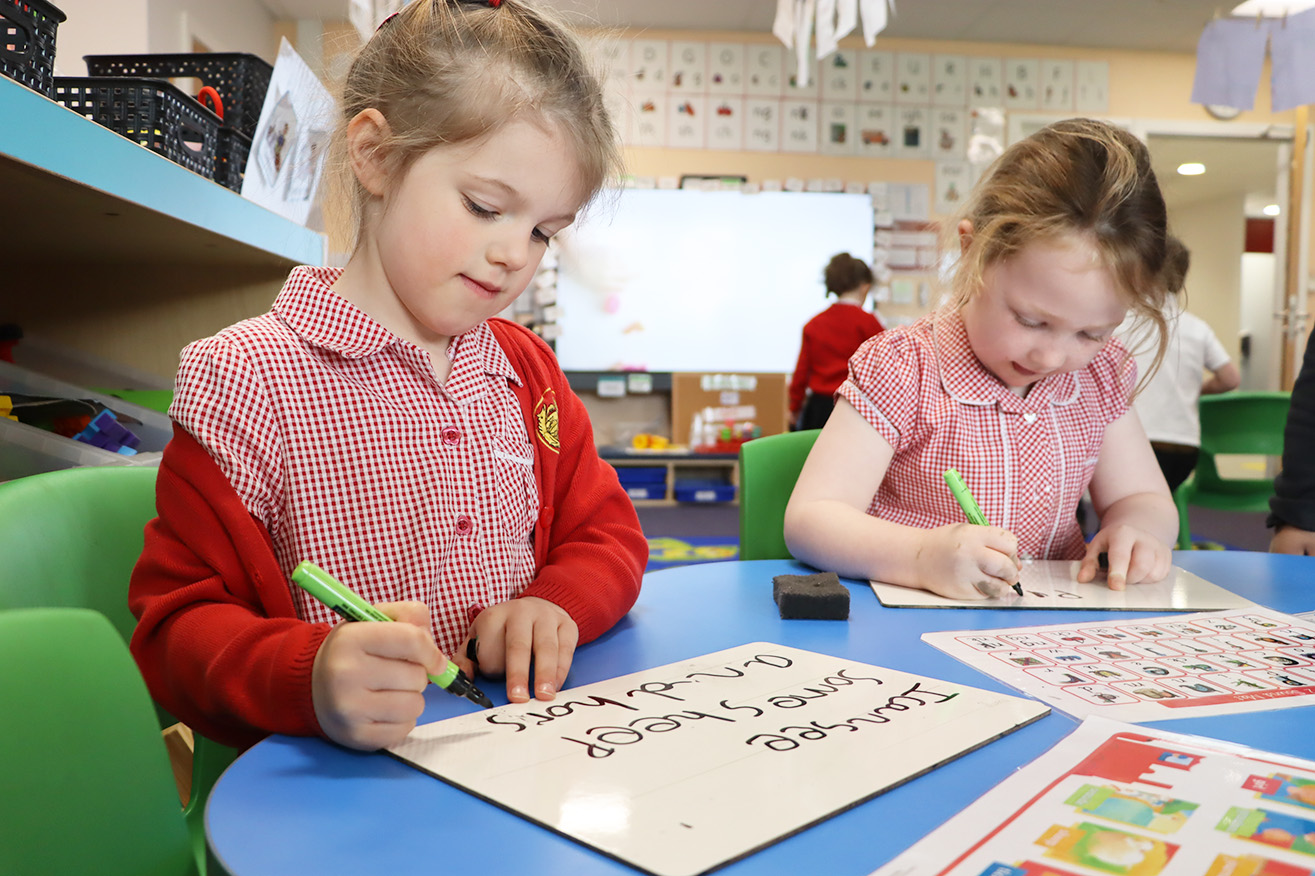
English Writing at Key Stage 1 (KS1)
Our focus at Saint George’s Primary Phase is on grammatically accurate and fluent writing. Teachers model the writing and planning process through shared writing sessions where ideas are collected and developed.
In KS1, time is given for pupils to orally compose sentences before writing them and later to evaluate their writing with the teacher or other pupils. Across the school, the children use drama, presentations, and debate to enhance their literacy skills. Grammar and punctuation are contextually taught within English lessons but also through discrete sessions where appropriate. Objectives taught within literacy are used to develop writing across the curriculum. Word processing, combining text and graphics, is developed using computer programs such as Word and Publisher where possible.
We encourage pupils to take pride in the presentation of their written work and reward pupils who maintain high standards in handwriting through incentives such as a pen licence. We aim to teach all children to write in a fluid, legible and joined style. In KS1 handwriting is taught frequently and through discrete, direct sessions, using ‘Letter-join’. ‘Letter-join’ is also used to support children’s learning at home.
Spelling Shed is used across the school to teach and help children practise spelling patterns and common exception words in a fun and interactive way. Children also work on spelling through weekly spelling tests, phonic activities and ‘word of the week’ tasks. Spellings are modelled and corrected regularly for them by the teaching staff.
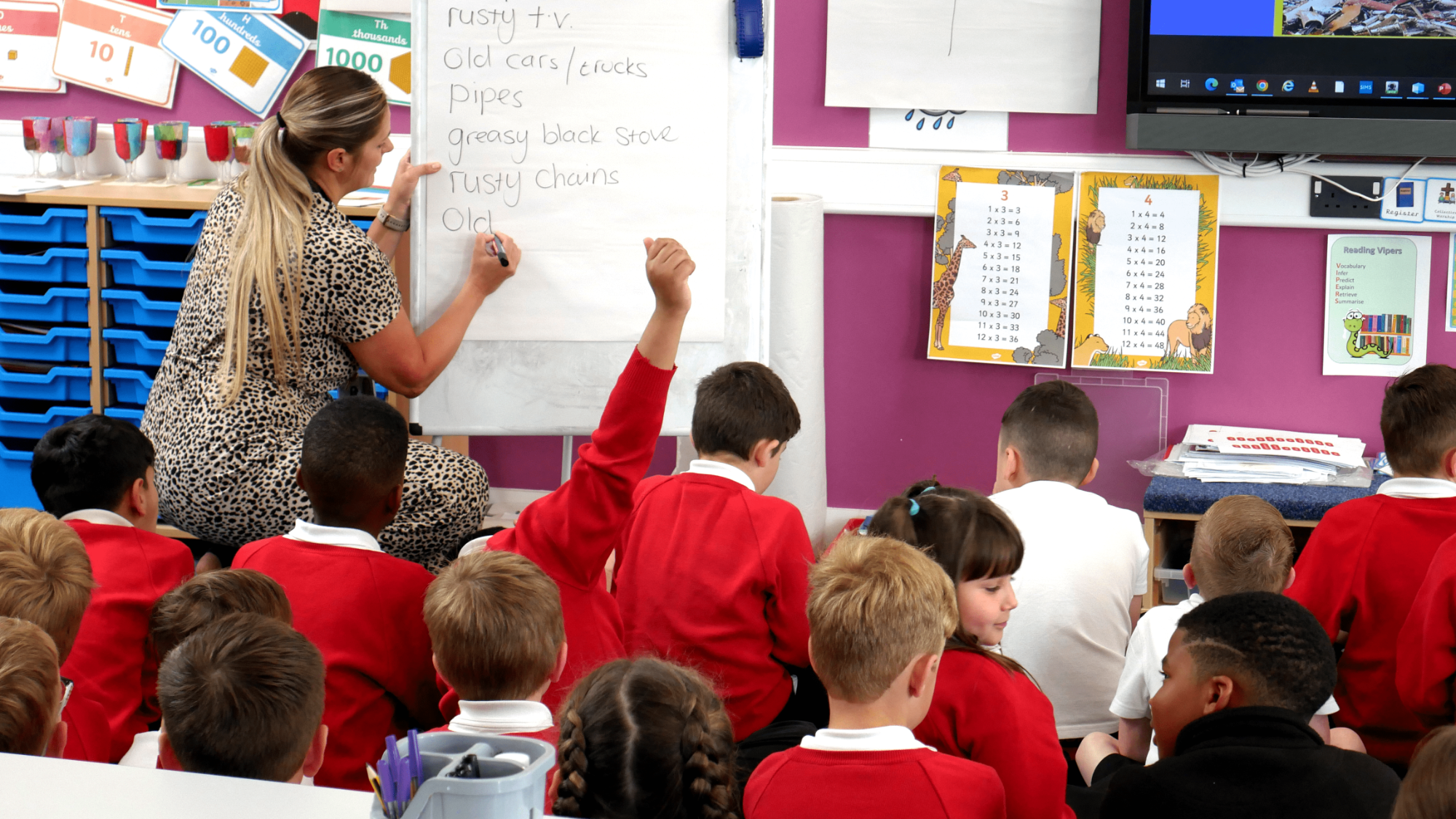
English Writing at Key Stage 2 (KS2)
In KS2, pupils may use writing similar to that which they are planning to write, in order to understand more about the structure. They will discuss ideas and draft their writing, later evaluating and editing their work.
Across the school, the children use drama, presentations, and debate to enhance their literacy skills. Grammar and punctuation are contextually taught within English lessons but also through discrete sessions where appropriate. Objectives taught within literacy are used to develop writing across the curriculum. Word processing, combining text and graphics, is developed using computer programs such as Word and Publisher where possible.
We encourage pupils to take pride in the presentation of their written work and reward pupils who maintain high standards in handwriting through incentives such as a pen licence. We aim to teach all children to write in a fluid, legible and joined style. In KS1 handwriting is taught frequently and through discrete, direct sessions, using ‘Letter-join’. ‘Letter-join’ is also used to support children’s learning at home.
Spelling Shed is used across the school to teach and help children practise spelling patterns and common exception words in a fun and interactive way. Children also work on spelling through weekly spelling tests, phonic activities and ‘word of the week’ tasks. Spellings are modelled and corrected regularly for them by the teaching staff.
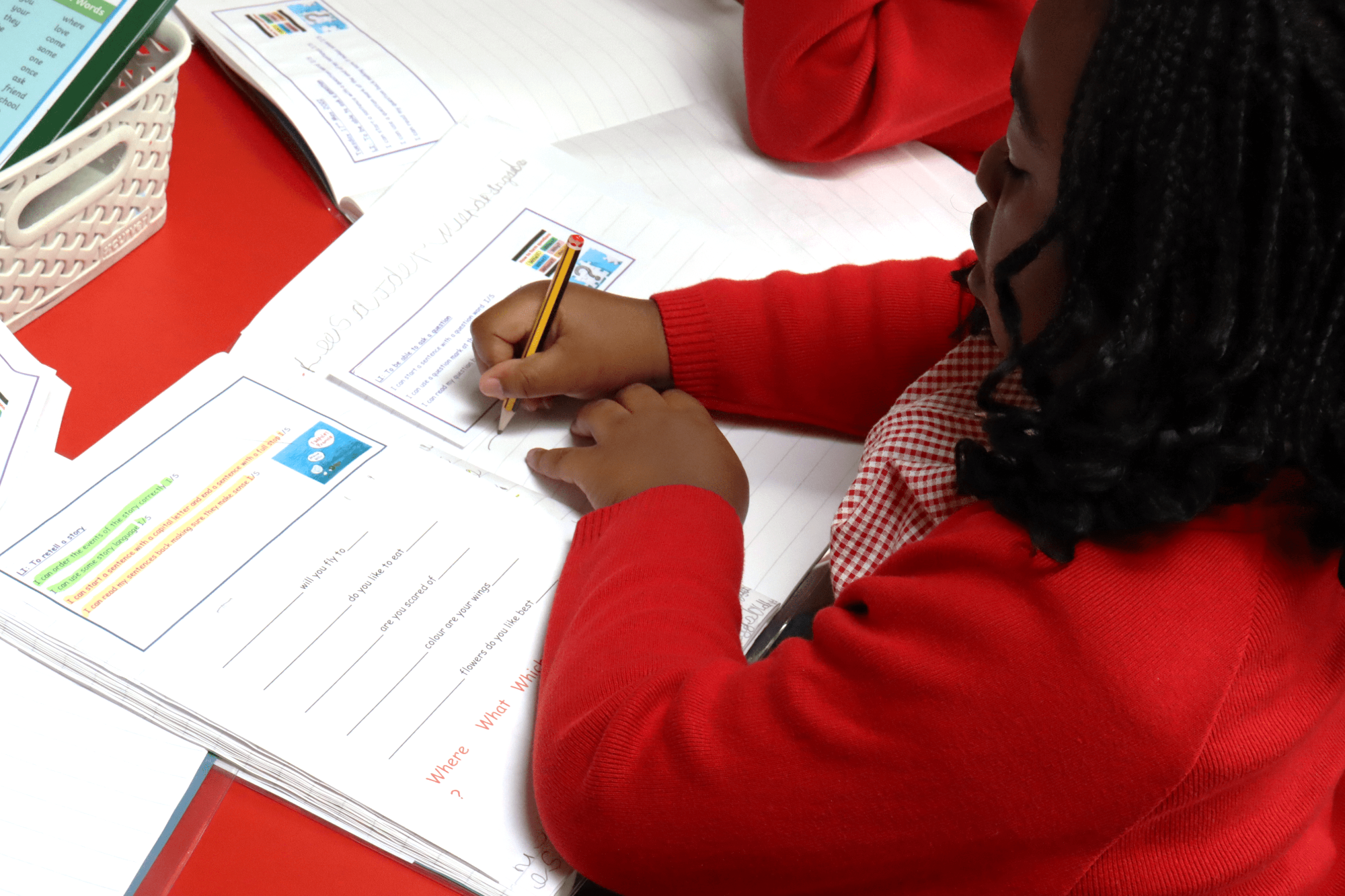
English Progression
All children from EYFS to year 4 follow a high-quality Literacy programme, which prepares, teaches and then consolidates both the concepts behind and the terminology of grammar and punctuation. Progress is measured and tracked each term.
SEND Information
Interventions, support and challenges are constantly revised and adapted to ensure all children are supported in achieving learning.
The above areas are robustly and continuously monitored to ensure any gaps in learning are addressed.
Remote Learning
If pupils fall behind, we have a range of strategies we use to help them catch up with their peers. This includes extra activities or consolidation and practice for targeted groups. One-to-one support with a trained teaching assistant. In-class small group support. Extra adult-led verbal support to improve spoken language. Role-play to practise language and sentence construction. Children are reassessed regularly so that they can keep up with their age-related learning.
Extra Resources
Further English Writing Help
Fun English Writing Games
